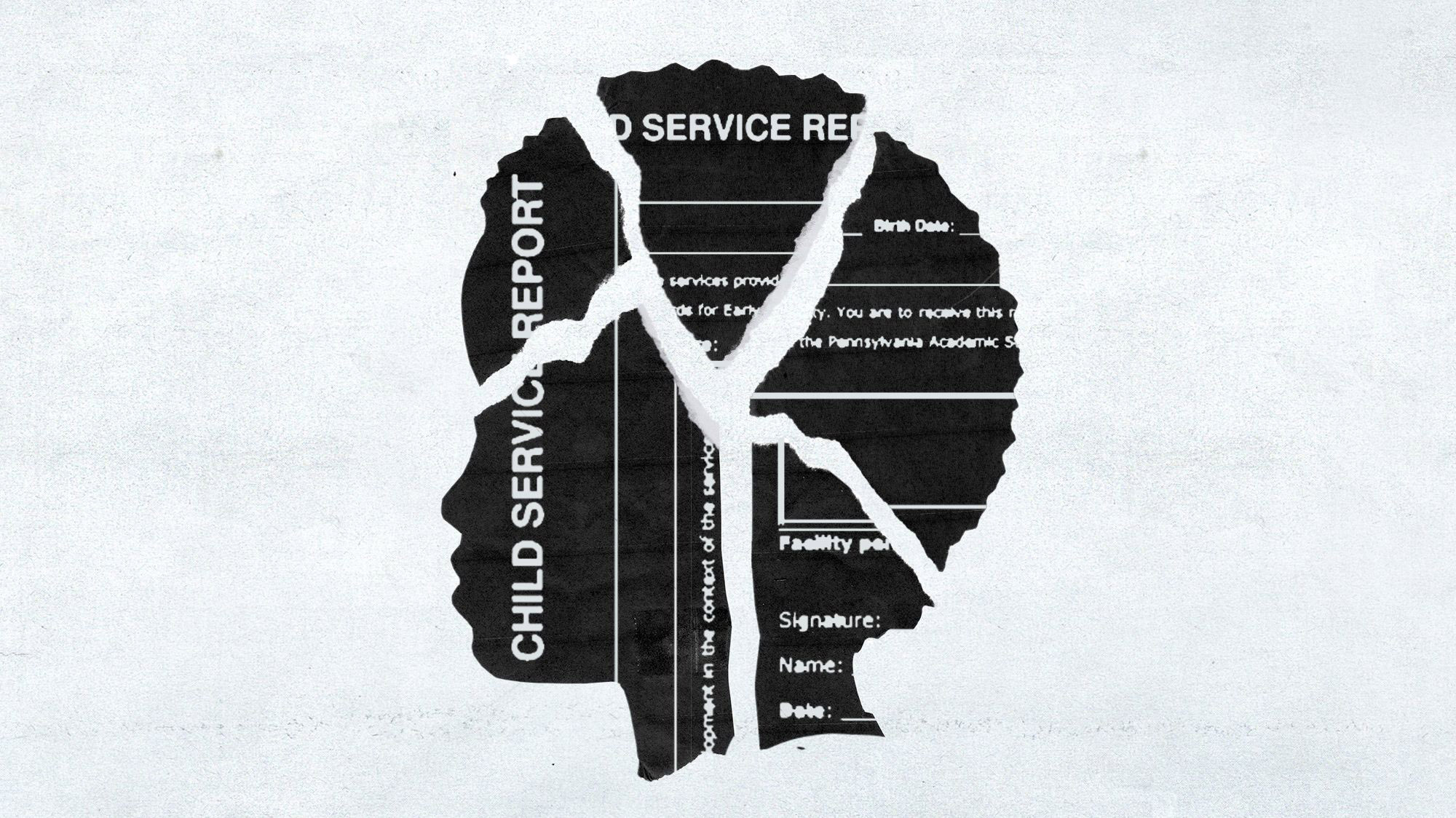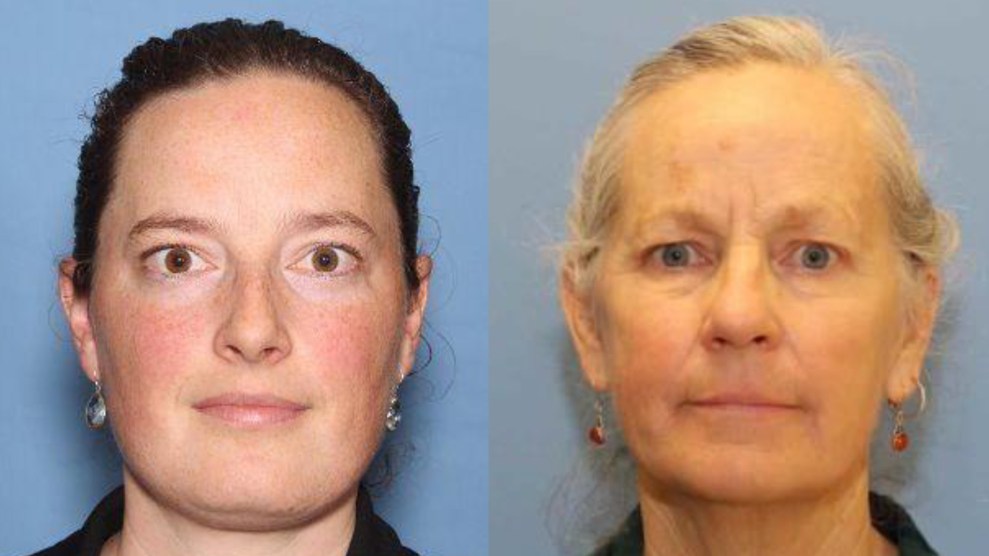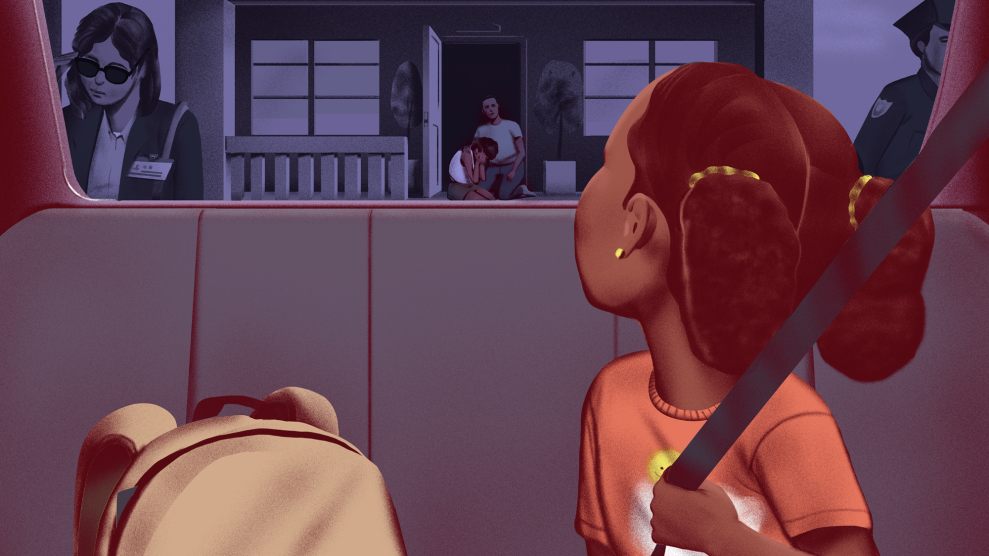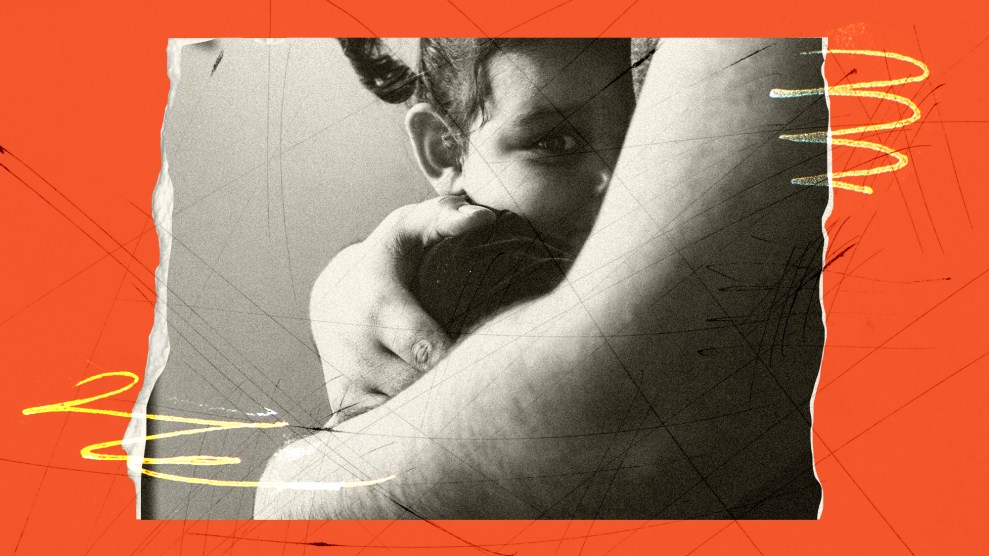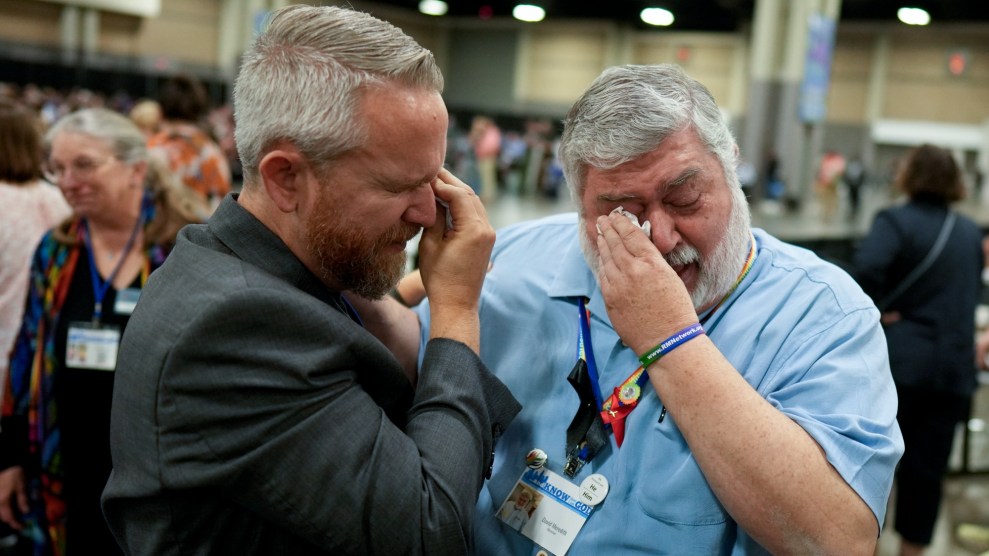Their gatherings were like something you’d expect after war, or genocide. Halting voices. Silences. The hush of a confessional. But these weren’t soldiers—they were social workers.
They spoke from their homes via the dispassionate confines of a Zoom conference. One woman talked softly about “apprehending” a 2-day-old baby, and recalled crying when she was praised for doing her job. Another described being sent out to take children from good parents who lived in shoddy housing. A third told how her colleagues would warn their own children, “If somebody has a badge like Mommy, don’t talk to them until I get there.”
Child protective services hold a contradiction at their core. Agencies have a mandate to protect children from serious harm at the hands of caretakers. But their most powerful tool is family separation, an act that itself can harm both children and parents, even when justified. Since 2020, a growing sentiment among experts that many such removals hurt more than help—and that they decimate communities of color—has brought this tension to the fore. Across the country, reformers and abolitionists are convening conversations between caseworkers and the families torn apart by CPS in hopes of constructively breaking the codes of silence that are a barrier to meaningful change.
“We so desperately need people in the workforce to step up and say, ‘I continue to do things that I know are ethically wrong,’” says Lisa Merkel-Holguin, a faculty member at the Kempe Center, an anti–child abuse program at the University of Colorado School of Medicine. The public should be hearing from caseworkers, she says, but also administrators and others who benefit from the halo effect of a system with a reputation for benevolence but a record that shows something different. The facts are stark: Low-income families are disproportionately investigated, their children removed, and their parental rights terminated. A full 9 percent of Black children, and 11 percent of Indigenous children, spend time in foster care, which is associated with all kinds of poor outcomes, from education deficits and unemployment to crime and homelessness.
I attended some of these conversations at the Kempe Center’s annual, 2,000-person conference. With names like “Ghosts in our psyches: Exploring the secret truths that haunt us within child welfare,” these sessions take inspiration from formal truth and reconciliation efforts in Canada and elsewhere to account for the mass removal of Indigenous children from their homes.
“Deep down, we know that things are messed up behind closed doors. We know the power of this system, and we feel powerless in this system,” says Colleen Gibley-Reed, a former caseworker and Kempe Center faculty member who trains child welfare professionals across Colorado. “Moral injury” is a phrase that comes up a lot in the sessions: the idea that when you are put in a position to hurt others—against your own beliefs—you yourself are hurt.
The Kempe Center’s role in the truth-telling circles is, in part, a kind of atonement.
C. Henry Kempe, the center’s founder and namesake, played a major role in the development of the modern child welfare system. Kempe was a doctor at the University of Colorado when he co-wrote a massively influential 1962 medical journal article called “The Battered-Child Syndrome.” In it, he documented cases of serious physical abuse of children that physicians overlooked as they deferred to parents instead. Kempe advocated for the adoption of mandatory reporting laws, which require doctors, teachers, and others responsible for the welfare of children to notify police or child protection agencies about suspected mistreatment. In a remarkably short amount of time, all 50 states passed mandatory reporting laws, and a federal mandate followed in 1974.
Today, the physicians, psychologists, and social workers at the Kempe Center are conflicted about this history. Some faculty members, including doctors who specialize in child abuse, strongly defend mandatory reporting laws and Kempe’s legacy, and say that without them, abuse would continue to be pervasive and ignored. Others point to these laws as a root cause of the overpolicing of low-income, Black, and Indigenous families, particularly when the support families really need is housing and child care. In the United States, at least 84 percent of children enter foster care for reasons other than abuse. Substandard housing is cited as a reason in 9 percent of removals into foster care, according to federal data from 2021. “Henry’s dead. We are an entity with his name in our title, and what kind of responsibility do we have to right the wrong?” Merkel-Holguin says. “Let’s be the model for how we as an organization can be on a truth-telling journey and start advocating for things that are more justice focused.”
Their first efforts, which received backing from the Annie E. Casey Foundation, have brought together parents, former foster children, and social workers in three communities: Louisville, Kentucky; Washington, DC; and Nambé Pueblo, New Mexico. Earlier this year, Kempe announced it would convene truth-telling groups in every state, with the ultimate objective of transforming child welfare systems so that fewer children enter foster care and community and cultural ties are preserved. Each group has organized itself a little differently. In Washington, DC, for instance, the circle is mostly composed of Black parents whose children were removed. In New Mexico, several members are caseworkers who also have experience as children or parents in the system themselves.
Cameron Galloway, age 25, has been participating in the Kentucky meetings for two years. At least once a month, he and other former foster children use artwork to tell their stories in front of audiences that include members of state and community agencies. Galloway, who is Black, hopes that talking about his experiences of abuse and resilience, both in his biological family and in foster care, will help lead to reform.
So far, he says, it has been a powerful, healing experience, one that he hopes will create lasting differences for his community: The group is advocating for changes that include giving money to biological parents to help them care for their children, rather than only to foster parents.
But some experts are wary of asking families to relive their worst moments. “It’s not the responsibility of the people who have been harmed to bring about that awareness,” says abolitionist Alan Dettlaff. “I should have to talk about the harm and trauma I caused.”
Dettlaff, who started his career as a caseworker in the 1990s and rose to be the dean at the University of Houston’s Graduate College of Social Work, now leads upEND, an initiative that aims to eliminate CPS. He believes that most, if not all, of the children he removed from their homes could have stayed with their families, and that racial bias plays a huge role in family separation. When investigating families in a neighborhood in east Fort Worth, which was predominantly Black and low-income, he and his colleagues always brought a car seat with them. They believed, based on no more information than the neighborhood, that they’d be leaving with somebody’s baby.
“It’s hard for me to this day to think of it. I vividly remember all the children who were removed, the pain that caused, the pain that the families are still experiencing today,” says Dettlaff, who is Mexican American. “At the time, I thought it was the right thing to do.”
He thinks of a Black child named Charles, who was around 9. The decision was made to remove him from his family because of the child’s misbehavior, even though Dettlaff couldn’t confirm he was being abused. “We brought the police with us. Charles’ mother and grandmother were at the house, and they knew immediately why we were there. The mother said, ‘Run, Charles, run! They’re going to take you away and sell you to the white people.’ Charles was running, frantically trying to put clothes in a backpack. The grandmother was saying, ‘Please don’t sell him down the river. Don’t sell him down the river.’”
Dettlaff didn’t know what that expression meant at the time. “To later understand how deeply connected the family separations are to slavery is still traumatizing for me to think about,” he says. “That’s the kind of horror and trauma that’s inflicted on families without any recognition of historical context, and the trauma that remains because of that historical context.”
Dettlaff believes there is no way for social workers to participate ethically in the child welfare system. For that stance, he says, he was demoted from dean to professor in December 2022. More than 120 students signed a letter of protest. (The University of Houston didn’t respond to a request for comment.)
Others aren’t willing to go that far, because they depend on the work for their livelihoods, because they believe in what they’re doing, or both. Valerie Rode works for the Office of Children & Youth Services in Lehigh County, Pennsylvania, and is a member of the Child Welfare Truth Telling Collective, a nonprofit founded by caseworkers in Ontario, Canada. (It had a hand in organizing the truth-telling circles at the Kempe Center conference.) Rode says her work with the collective has helped her be more empathetic. But she doesn’t want to abolish the child welfare system altogether. “The system can’t completely go away because we definitely are serving children whose families are not meeting their needs, or they are harming them,” Rode says.
Kempe organizers had hoped that those joining their sessions would come to a common understanding, creating a framework upon which they could build a case for reform. But so far, the participants who work in the system have struggled to get on the same page, Merkel-Holguin says. There hasn’t been consensus about how exactly child protective services fall short—no baseline understanding of harm.
Local reform, she notes, may be the more promising place to start. “Maybe it needs to be community specific,” she says. “Maybe from a national perspective, we can’t get there yet.”
Galloway adds that each group can’t fix things on its own. Particularly not CPS workers—even the best ones. Galloway beat the odds for kids who grow up in foster care—something he wants to be “the standard, not the statistic,” as he puts it. He went to college, and in May, he graduated from the University of Louisville with a master’s degree in social work. He credits his success to God, to his own mindset, and to a support network that included, unusually, his social worker, who stayed with his case from the time he was 2 until he aged out at 20.
But would Galloway consider working for CPS? “Absolutely not.”
